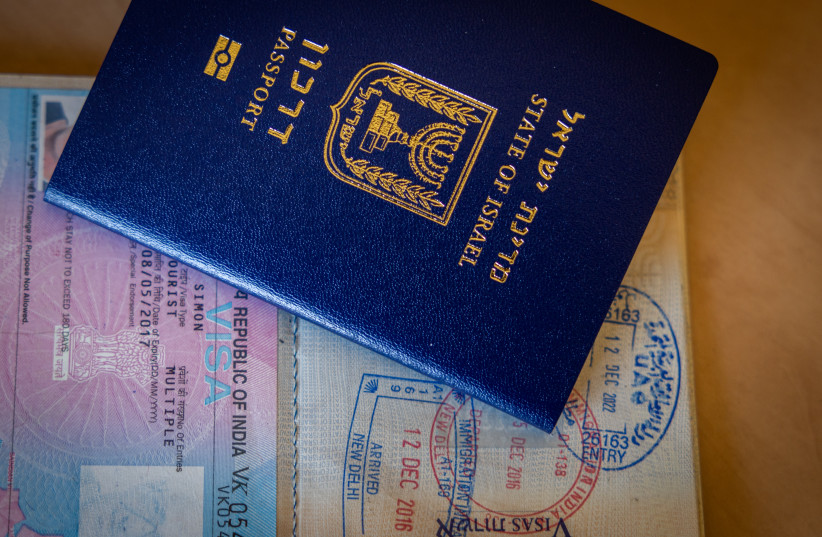Alona Levy grew up as an only child in Izhevsk, an industrial city in Russia’s Volga Region.
Her mother was a marketing director at a large factory, and her father worked as an engineer for the electric company. A bright student, Levy received her undergraduate degree in economics and an MSc in mechanical engineering in her early twenties.
 Learn how to buy your home in Israel with confidence
Learn how to buy your home in Israel with confidenceAt the age of 23, seeking more opportunities than those available to her, Levy decided to make aliyah.
“I didn’t speak a word of Hebrew, and I had never visited Israel,” she laughs, “but somehow I knew that this was the place for me.”
“I didn’t speak a word of Hebrew, and I had never visited Israel, but somehow I knew that this was the place for me.”
Alona Levy
Her instincts proved correct. When she arrived in Israel, Levy felt an immediate connection to the country. “It just felt right, like this was my place,” she recalls.

Learning Hebrew in Israel
She lived in Netanya, and her first mission was to learn Hebrew. “I was so determined to speak the language. I knew that without this, I would never be able to advance.”
She enrolled in a Hebrew-language ulpan and went to work in a women’s clothing store in order to speak with Israelis every day, all day. Her Hebrew improved drastically as a result. She also fondly recalls her neighbors, an elderly couple who helped her to not only learn the language but also regaled her with stories from their life in Israel.
“The man would sit outside, under the building, hand-weaving hammocks,” says Levy. “I would wait for him to go downstairs and then follow him, pull up a chair, and speak with him. His stories were fascinating, and he never got impatient with my Hebrew mistakes. I learned so much from him on many levels.”
Levy left Netanya for better job opportunities in Tel Aviv. She worked for an export company in logistics for a number of years, and when it closed she took a job at Israel’s leading door manufacturer.
“I worked there for 10 years,” she says. “With my economics background, I worked in the finance department.”
During this time, Levy met her Israeli-born husband, a civil engineer. They had two children – Haim, now nine years old; and Maya, age five. They recently moved to the city of Shoham, and Levy felt that it was time to make a change in her life. The commute to her job in Rishon Letzion was too time-consuming, so she decided to try a different direction and do something new.
Getting back into hi-tech
“I thought to retrain to work in hi-tech, but I wasn’t sure exactly how,” she says. Levy couldn’t afford the time or expense to go back to school.
She read about a new subsidized training course offered by Qualitest, an AI-powered quality engineering company, to learn a high-demand skill for working in hi-tech.
“I met all of the criteria for the five-month Validation and Verification training course, and I was so pleased when I was accepted,” she says.
The training provides participants with the knowledge and skills to check medical devices and ensure that they comply with all relevant regulations and safety measures. The course is a collaboration with a new national initiative, Heznek for High Tech.
The initiative, founded by the Heznek L’Atid (Sprint to the Future) nonprofit organization, provides quality tech training and employment opportunities for under-represented young adults who face professional and personal barriers to finding entry-level employment in hi-tech. One of the program’s goals is to increase the number of women employed in hi-tech.
Heznek for High Tech, which aims to reach 400 participants throughout Israel over the next two years, is supported by strategic funders J.P. Morgan, Bank Discount, and the Israel Innovation Authority.
“The course was very intensive,” says Levy. “We met twice a week for five hours each time. Although this sounds tiring, it was actually really exciting and very interesting.
“The lecturers were amazing, and I met so many different people,” she continues. “We worked on real-time projects and gained much-needed practical experience. This has opened a whole new world for me, and I love it.”
Levy completed her final course project compiling an extensive report on an actual medical device, checking the application and ensuring that it doesn’t have any bugs. She explains that she cannot give more details, as the device has not yet gone to market.
“This course has given me the tools and confidence to learn something new, to advance and to really develop,” she explains. “Israel is the Start-Up Nation, and it is very empowering to be part of it.”
One of the main goals of the Heznek for High Tech program is to work in collaboration with tech companies to develop and implement the program so that it meets industry needs. This, is turn, leads to successful integration into the workforce.
Levy is now working for Qualitest, providing services for one of their main clients, Teva Pharmaceuticals. She may enroll in additional courses to learn computer programming and full -stack web development, both of which are sought-after skills in hi-tech.
“The sky is the limit,” she says with a smile.
Making aliyah at age 23 was a life-changing decision. Levy has never looked back. ■
Alona Levy, 39 From Izhevsk, Russia to Netanya, 2007
 Sign up for our newsletter to learn more
Sign up for our newsletter to learn more 